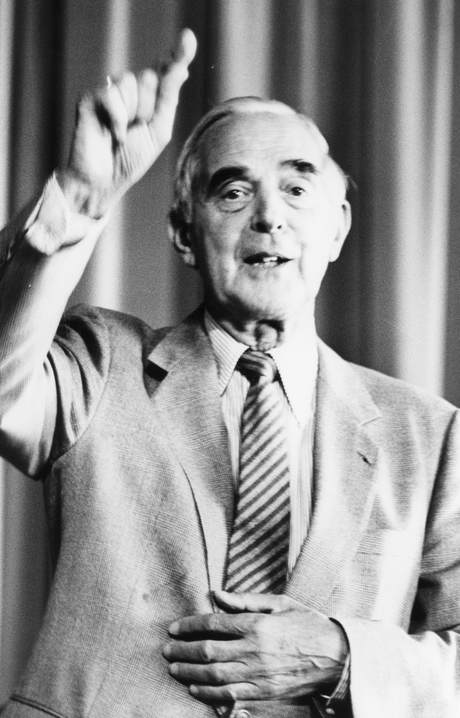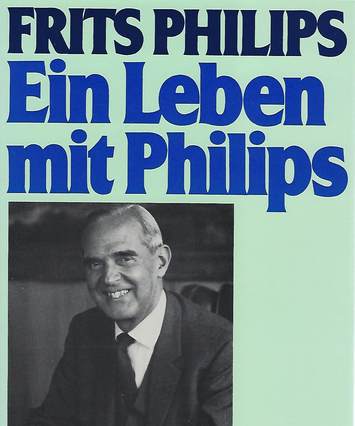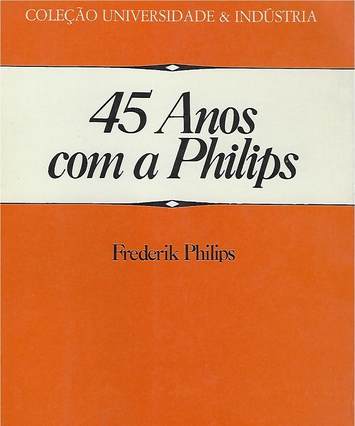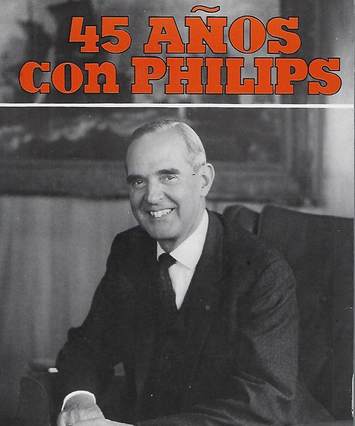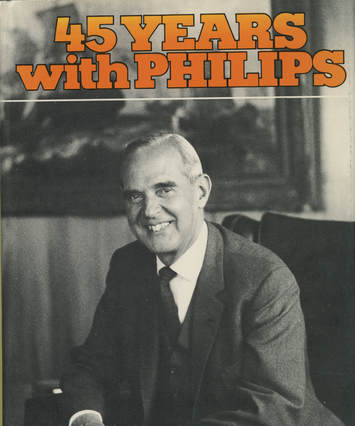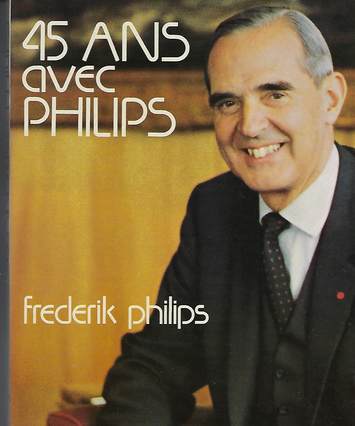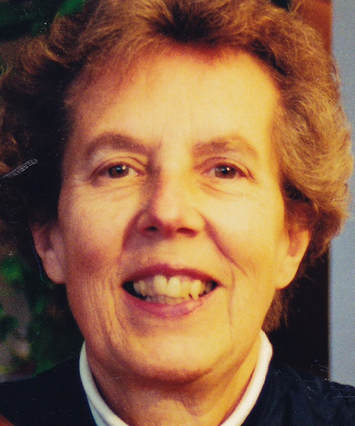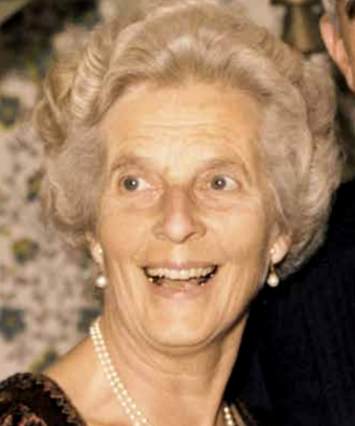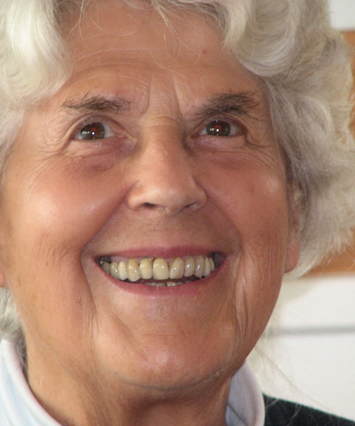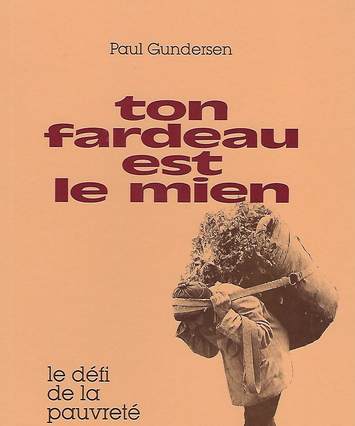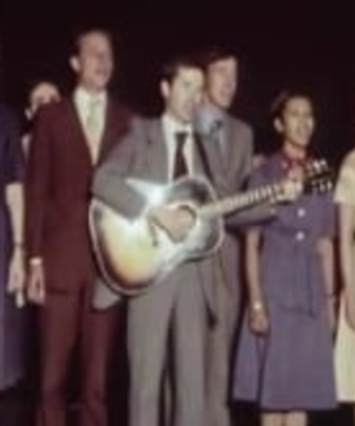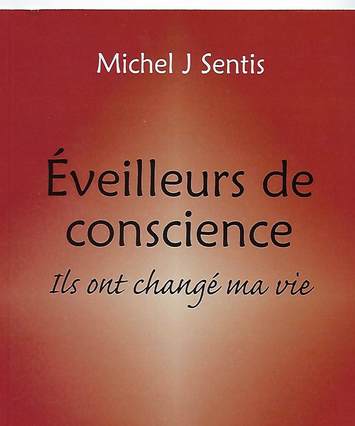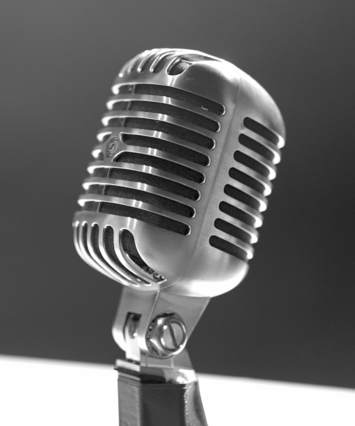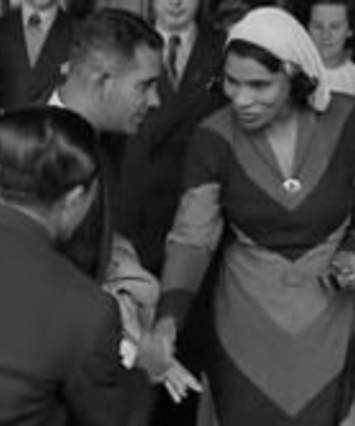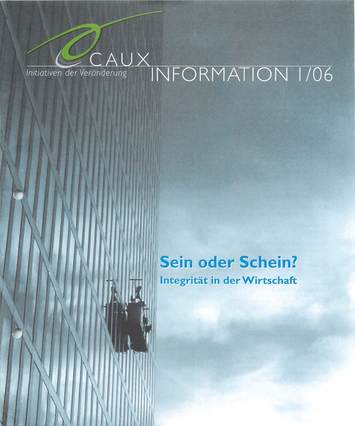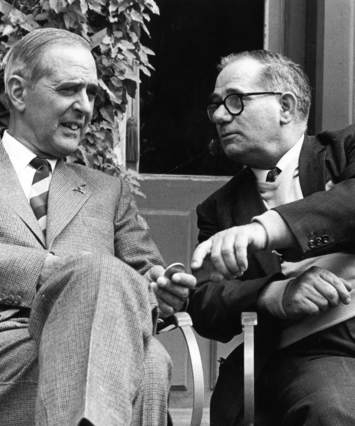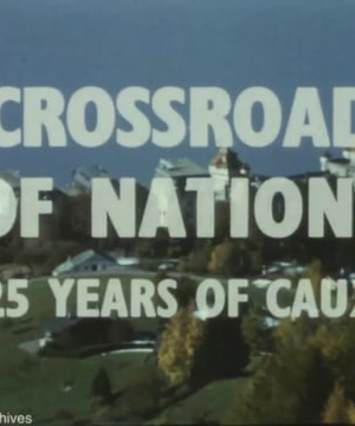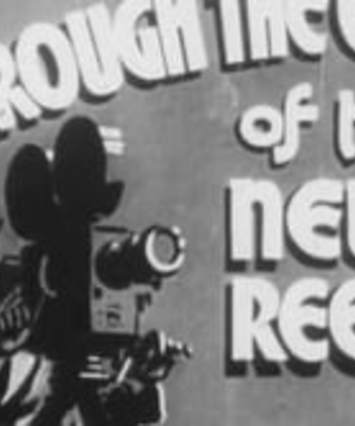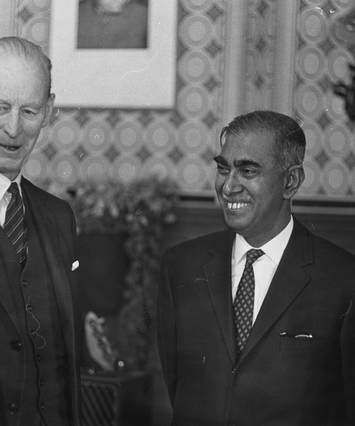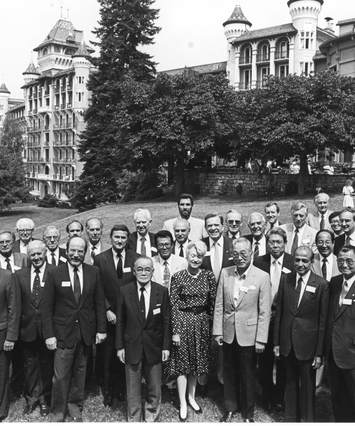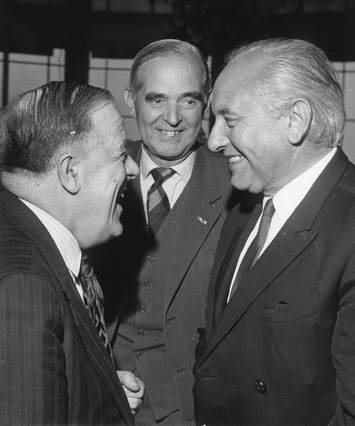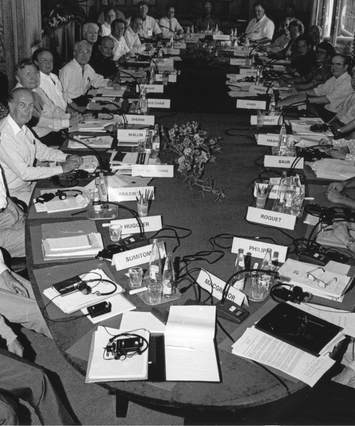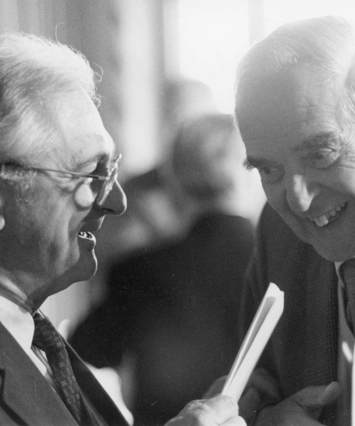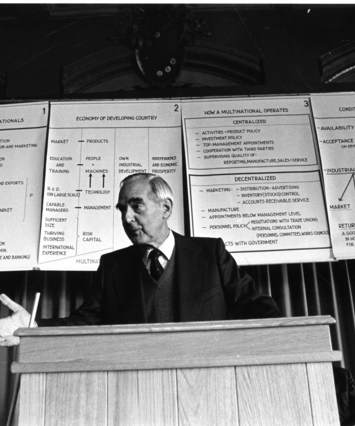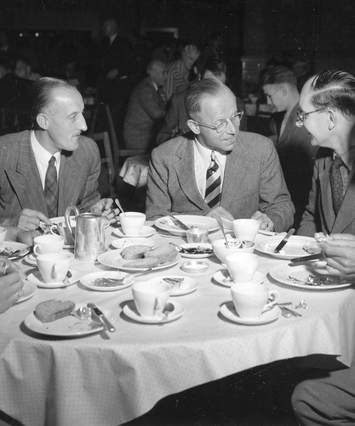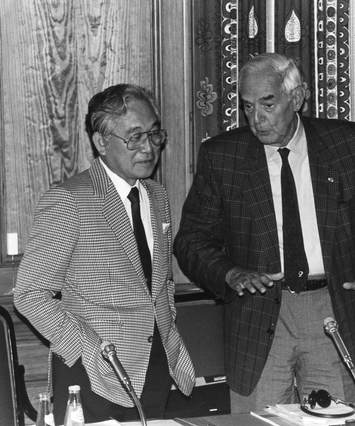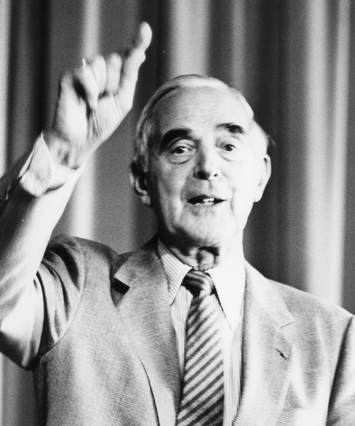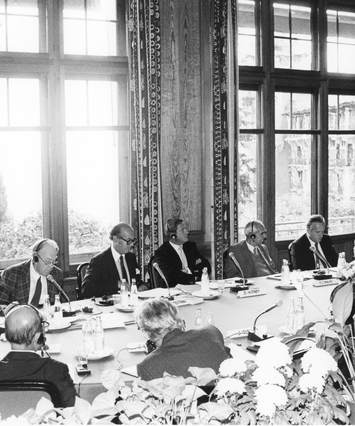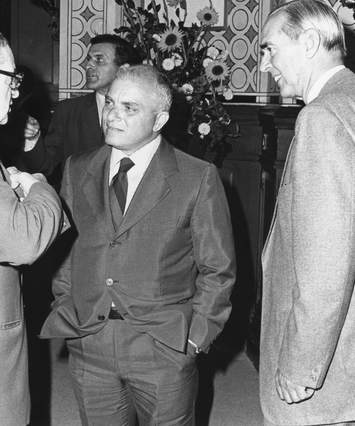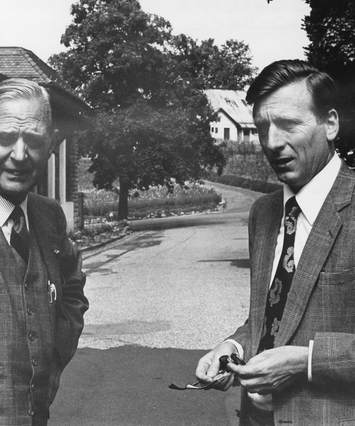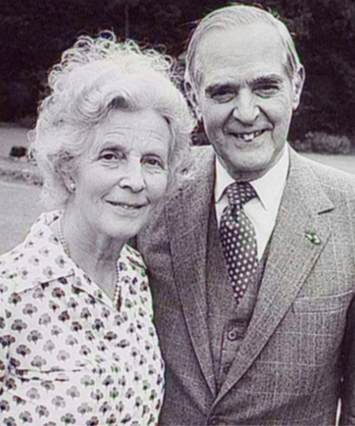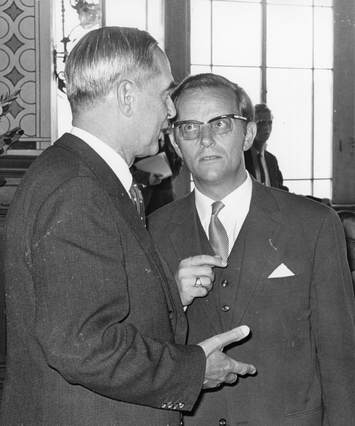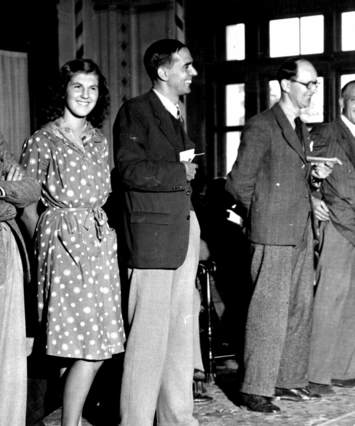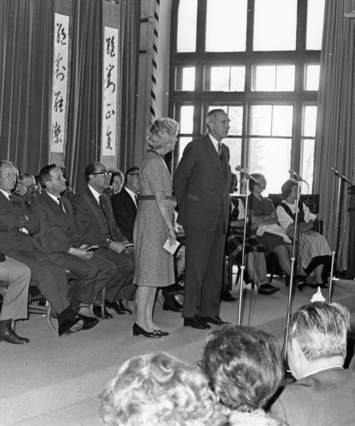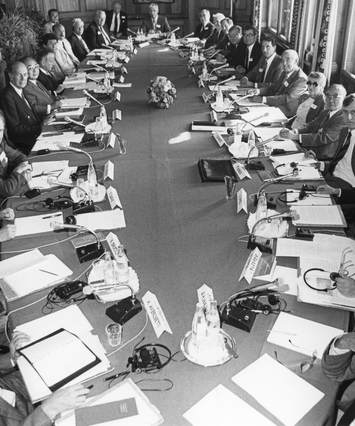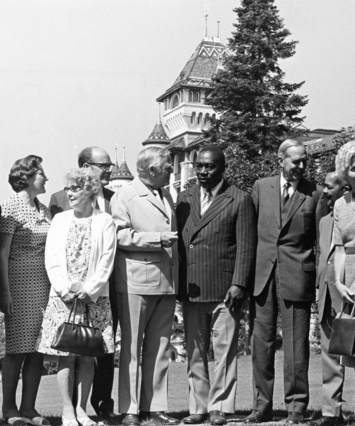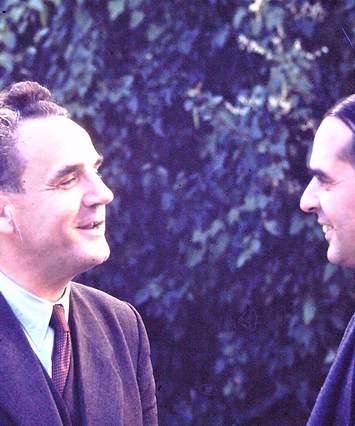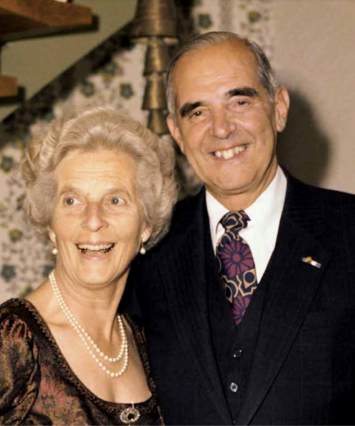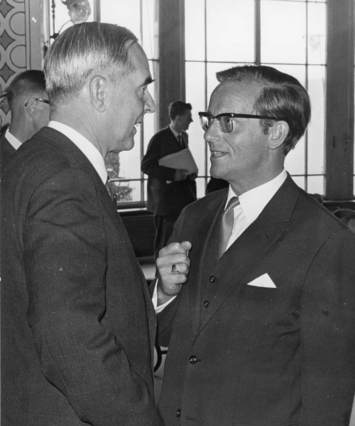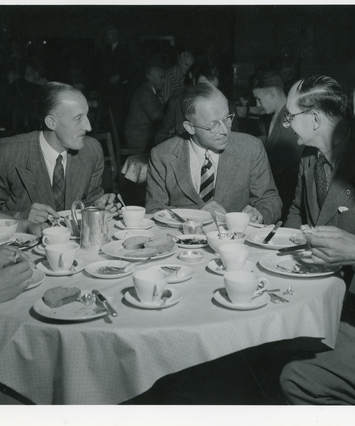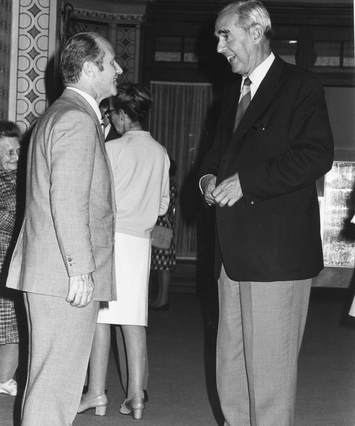Frederik Jacques "Frits" Philips (16 April 1905 – 5 December 2005) was the fourth chairperson of the board of directors of the Dutch electronics company Philips, which his uncle and father founded. For his actions in saving 382 Jews during the Nazi Occupation of the Netherlands in World War II, he was recognized in 1996 by Yad Vashem as a Righteous Among the Nations.
Early life and education
Frits Philips was born in the city of Eindhoven in the south of the Netherlands. The second child, he was the only son of Anton Philips and his wife Anne Henriëtte Elisabeth Maria de Jongh. His father was co-founder when in 1912 they incorporated the family business. Frits had an older sister named Annetje and a younger sister named Jettie. Their grandfather Frederik Philips was a first cousin of Karl Marx.
In 1923, Philips started his studies at the Delft University of Technology; he received an engineer's degree in mechanical engineering in 1929. He was introduced to the Oxford Group in 1934, the Christian movement that was the forerunner of Moral Re-Armament (MRA) and Initiatives of Change (IofC).
Marriage and family
The Oxford Group was a lifelong source of inspiration to him and his wife. On 4 July 1929 in The Hague, he married Sylvia, Jonkvrouw van Lennep. The couple had seven children: Digna Hintzen-Philips (14 September 1930 - 7 February 2018, who married Peter Hintzen and has Herman-Frederik and Rein), Anton Frederik (Ton) (b. 12 March 1932 who married Johanna Charlotte Daneel and had Frits, Joey and Karel), Anne Jetje (Annejet) Campbell-Philips (14 October 1933 - 1 March 2007, who married Paul Campbell and had Edith Anne and Digna), Sylvia Dutterloo-Philips (6 December 1936 – 13 June 1988, married to Herbert van Werkhoven and had Sylvia and Harro, later married Anton Dutterloo), Warner (b. 3 August 1938 who married Nel de Graaf and had Liz and Maria), Frederik (Frits) (b. 10 April 1940, who married Christine Bosschaart and had Christine, Tony, Warner and Annejet, later married Els van Slingelandt) and Maria Philips-Moniz (b. 23 April 1947 who married Hans Schouten and had Jan, Marileen and Pieter, later married Allan Moniz and had Mark).
Career
On 18 October 1935, Frits Philips was appointed vice-director and a member of the board of Philips.
Learning of the expected occupation of the Netherlands by Nazi Germany in World War II in 1940, his father Anton Philips, young nephew Frans Otten, and other Philips family members escaped from the Netherlands and fled to the United States, taking company capital with them. Frits Philips stayed in the Netherlands. Together they managed to keep the company alive during the war.
From 30 May until 20 September 1943, Philips was held in the concentration camp Vught because of a strike at the Philips factory. During the Occupation, Philips saved the lives of 382 Jews by convincing the Nazis that they were indispensable for the production process at Philips. In 1996, he was recognized by Yad Vashem as among the Righteous Among the Nations for his actions.
In 1961, Philips succeeded Frans Otten as president of the company. He served in this position for 10 years; in 1971 he was succeeded by Henk van Riemsdijk.
At the age of 100, on 5 December 2005, Philips died from complications resulting from a fall in November.
Mr. Frits
Frits Philips was immensely popular in Eindhoven. The citizens of Eindhoven commonly referred to him as "Meneer Frits" (Mister Frits). Frits made no class difference between factory workers and members of the board of directors: he was often seen chatting to the factory workers, which contributed to his popularity.
His hundredth birthday in 2005 was celebrated on a large scale in his home city of Eindhoven, which was renamed Frits Philips Stad (Frits Philips City) for the occasion. The city minted a special coin that bears the nickname "Fritske". The yearly Lichtjesroute event honoured him that year by placing a picture of him highlighted along the route (see right).
The Caux Round Table
In 1986, Frits Philips launched the Caux Round Table (CRT) group of senior European, Japanese and American business executives. Alarmed to hear that the Japanese were dumping their products on the western market, he feared a growing trade war. He saw the need to build trust among international executives and for Corporate Social Responsibility practices. The CRT's Principles for Business were published in 1994, incorporating western concepts (human dignity...) and Japanese ones (kyosei, interpreted as “living and working together for the common good”). An international code of good practices written by such senior industrialists from such varied backgrounds remains exceptional today. It was presented to the UN Social Summit in Copenhagen in 1994. It has since become a standard work, translated into 12 languages, and has been used as the basis for internal ethical assessments by international companies such as Nissan.
Awards and honours
Frits Philips has received many honorary titles and awards during his life.
- 1965, he received honorary citizenship of the city of Eindhoven for his "exceptional contributions to the welfare of the citizens of Eindhoven".
- 1965, he was included in the Dutch royal ranks of Orange-Nassau (rank of commander).
- 1970, he was knighted as Knight in the Order of the Netherlands Lion. He has also received honorary titles in many countries, including Japan, Spain, Denmark and China.
- 1995, on his 90th birthday, the Muziekgebouw Frits Philips concert hall was named after him.
- 1996, he was honoured as "Righteous Among the Nations" by Yad Vashem, for saving the lives of 382 Jewish employees of Philips during World War II.
- 1999, he was named "Dutch entrepreneur of the century".
- 2005, on April 5 to mark his 100th birthday, Eindhoven was officially renamed "Frits Philips Stad" for the day.
Excerpts taken from Wikipedia: https://en.wikipedia.org/wiki/Frits_Philips

